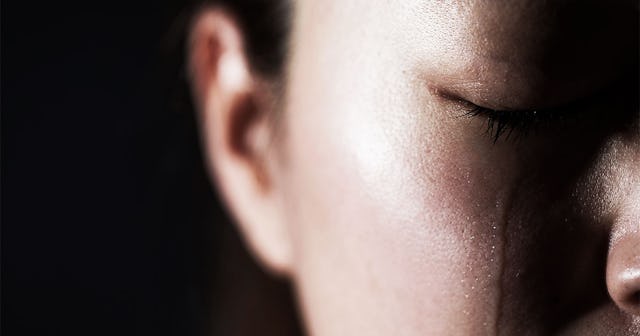What Losing A Loved One To Addiction Is Really Like

When I entered my mother’s house on June 24, 2020, I knew what I was going to find. No one had heard from her in days. Her phone had gone unanswered. Texts had gone unread. When I rang her doorbell, there was no response. The intercom buzzed loudly. Incessantly. But I was met with silence. I didn’t hear her say “hello” or (her usual) “go away.” And that was because my mother was unconscious. Well, more accurately, she was face down on her bedroom floor clinging to consciousness. And while the exact details of that moment belong to me — to us — what happened next needs to be talked about. It needs to be explored. Because my mother died three days later, and while cardiac arrest claimed her in her final moments, addiction took her life.
It was a battle she lost.
She was only 65.
Of course, if I’m being honest, I knew this day would come. My mother, born the same year as “Sports Illustrated,” was a stubborn woman. A hard-headed woman. And while she endured her fair share of traumas and hardships — she lost her husband in 1996 and her job in 2001, and again in 2013 — she was (in many ways) not a nice woman. She regularly said things like “screw him” or “fuck that.” She also had her demons. Shortly after my father’s passing, grief took hold of her. Depression consumed her, and she became a ghost in a shell. For 24 years, she lived in the shadow of death. But things got particularly difficult in 2013 when she lost her job. When, months later, she lost her mother-in-law because it was then she turned to the bottle.
She became an alcoholic in her 50s.
I tried to intercede. Two years before her passing, my husband — a recovered alcoholic — and I staged an intervention. We tried to support her and help her, to let her know she didn’t have to live like this. She wasn’t alone. But it didn’t go anywhere because she was sick. Sick and stubborn. She also hadn’t “bottomed out.” Unfortunately, she never would because her bottom would also be the end of her battle. Would be the end of her life.
We mourned her, in masks, on July 3. We buried her, alone and (still) in masks, on July 26, and while COVID has made our grieving process complicated, losing a loved one to addiction is even more complex because there is anger, guilt, sadness, and shame. Because there is disappointment and heartbreak — agony, anguish, and remorse. And because I’m not grieving her death as much as I am grieving the loss of her life. Of the moments we could have made, and the memories we should have shared.
But that’s not all: When a loved one dies of addiction, there is a sense of responsibility and regret. While I know there is nothing I could have done, I blame myself, frequently and regularly. I shouldn’t have served her during holidays. I should have forced my way into her house and dumped her supply of booze. When a loved one dies of addiction, there is heartache and heartbreak. I distanced myself from her during her last year of life, taking the tough love approach, but it failed. I failed, and that hurts. The sadness is overwhelming. When a loved one dies of addiction, there is discontent. The loss feels like a slight. Like you’ve been robbed. And when a loved one dies by addiction, there is anger — a lot of anger — because things didn’t have to be like this. There was help available to my mother, but she didn’t see it. She refused to take it.
There is also a sense of relief. I am no longer “on edge,” waiting for the proverbial shoe to drop. Instead, it’s over. It has. The worst has come to pass.
That said, it is important to note that addiction isn’t just a “weakness” or a battle of wills. It is an illness, a complex disease which alters the structure of the brain. But knowing this doesn’t make things any easier. It complicates the grief process in ways I’m still coming to terms with, ways I am just beginning to understand. But I’m trying. I go therapy to process the pain, the shame, the guilt, the trauma. I run, journal, and write. I take care of myself in every way I can, and I speak about my mother’s addiction — openly and freely — so others do not have to struggle in silence. So others feel less alone.
If you or someone you know is struggling with the effects of alcohol or addiction understand there is help and hope. Visit the Substance Abuse and Mental Health Services Administration (SAMHSA) website and/or contact at 1-800-662-4357,
This article was originally published on